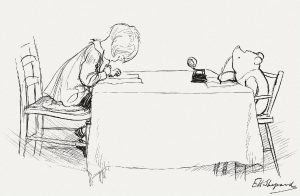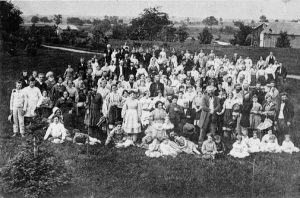“Hello, I’m Johnny Cash.” These famous words once echoed within the walls of a prison that earned its fame through a song. The performance, though, was much more that just a set of lyrics or a nice tune. On January 13, 1968 at the beginning of what would become a tumultuous year, Johnny Cash, June Carter, Carl Perkins and the Tennessee Three performed two shows at Folsom Prison in California. These performances would forever change the landscape of music, reaching Time Magazine’s 100 top albums of all-time in 2006, while also raising awareness for prison reform by putting it into the spotlight.1
Before this performance, Johnny Cash and his health were in a downward spiral. His song “Folsom Prison Blues” was inspired by the film “Inside the Walls of Folsom Prison” in which he saw himself as a prisoner at Folsom. This song caused many of the inmates and people around the United States to believe that he was once incarcerated at Folsom Prison. This was not true, although Mr. Cash had spent a few nights in other jails for drunk and disorderly conduct and possession of drugs. This led many to believe that because of this, Cash’s music and performances resonated with deeply with prisoners.2
The Civil Rights Movement brought attention to prison reform, and Cash’s home state of Arkansas was one of the worst offenders of these kinds of abuses. Their ineffective treatment and rehabilitation of their inmates, along with poor living conditions made him empathize with the men. He decided to use his social and celebrity status he decided to spark a change.His dependence on drugs at the time made Columbia Records unwilling to record a live performance at the prison. But in 1967 both Cash and Columbia Records underwent major changes, and when Bob Johnston was put in charge of Cash’s musical performances, Folsom Prison was a go.3

The performance was set for January 13, 1968, so the band and Cash’s father arrived three days earlier to rehearse the carefully crafted lineup of songs. While at El Rancho Motel in Sacramento, California, the Governor of California Ronald Reagan, who was there for an after-dinner speech, visited the band and offered his words of encouragement.4 The night before the performance, Cash stayed up late rehearsing a song written by inmate Glenn Shirley called “Greystone Chapel,” which was about finding God in the chapel at Folsom Prison. Moved by the lyrics “Inside the walls of prison my body may be/But the Lord has set my soul free.” Mr. Cash vowed to play the song the next day. 5
On the morning of January 13, Mr. Cash met with Los Angeles Times writer Robert Hilburn (who later wrote the biography Johnny Cash: The Life) and photographer Jim Marshall at Folsom Prison where things were tense. A guard had recently been taken hostage, and so the inmates were told not to stand during the show. Armed guards carefully watching the crowd from above, but apart from all the chaos stood a calm man dressed in all black. When he took the stage for his first performance out of two that day, the inmates were told not to cheer until he had introduced himself, and they listened. His first song on the list, Folsom Prison Blues, sent the crowd into an uproar and the entire event was a huge success.6

Four months after the performance, the album At Folsom Prison was released. More importantly was the success that came with it, which allowed Cash to speak more about the reform needed in prisons. “He thought the prison system was broken, it wasn’t fixing anybody,” said Mark Stielper, a friend of Cash’s and the family’s designated historian. “The population was mixed, kids and killers. This was his thing; he was really bothered by that.”7 With no other celebrity making society aware of those issues at the time Mr. Cash brought major spotlight, and as a result he was invited by Senator William E. Brock III (R-Tenn.) in July 1972 to testify before the Senate Judiciary Committee’s subcommittee on national penitentiaries. During the same visit Cash met with President Richard M. Nixon in the Oval Office to further discuss the issue. After these important meetings he continued to perform at other prisons, Mr. Cash also spoke about the issue at concerts and on his TV program, and would also visit inmates at his home in Tennessee to play cards and socialize with them. 8
On top of all the musical success was a nation who did not support the cause of prison form enough, and so no traction was really gained from Cash’s advocacy. The performance though, left a lasting effect on country music and solidified Johnny Cash as someone who stood up for those who are often misunderstood and needed help, mirroring his own personal life in a special way.
“So my intuitive take on the time around Folsom is paradoxical, given what the subject matter was: It was the moment that he came into the light. It’s a paradox, but it’s true. When I think about my dad’s life and I think about that moment, that’s when there’s a kind of force, when he embodied who he really was. And that’s light, no matter how much darkness is in it.”
-Rosanne Cash, daughter of Johnny Cash.9
Video interviews made by Northern Light. | Courtesy of YouTube
- Wikipedia, 2018, s.v. “At Folsom Prison,” https://en.wikipedia.org/wiki/At_Folsom_Prison. ↵
- Allison Stewart, “At Folsom prison, Johnny Cash found his cause,” The Washington Post, May 29, 2018, Accessed September 7, 2018, https://www.washingtonpost.com/national/at-folsom-prison-johnny-cash-found-his-cause/2018/05/28/740124ca-4f03-11e8-84a0-458a1aa9ac0a_story.html?noredirect=on&utm_term=.1974f5815d36. ↵
- Colin Woodward, “The Arkansas prison scandal,” March 22, 2018, https://www.arktimes.com/arkansas/the-arkansas-prison-scandal/Content?oid=15957051. ↵
- The Encyclopedia of World Biography, 2nd ed., vol. 3, 2004, s.v. “Johnny Cash,” 353-355. ↵
- Allison Stewart, “At Folsom prison, Johnny Cash found his cause,” The Washington Post, May 29, 2018, Accessed September 7, 2018. ↵
- Robert Hilburn, Johnny Cash: The Life (New York: Little, Brown, and Company, 2013) 325-327. ↵
- Danny Robins, “Johnny Cash and his prison reform campaign,” BBC World Service, Arkansas, January 23, 2013, https://www.bbc.com/news/magazine-21084323. ↵
- Allison Stewart, “At Folsom prison, Johnny Cash found his cause,” The Washington Post, May 29, 2018, Accessed September 7, 2018. ↵
- Michael Streissguth, Johnny Cash’s ‘At Folsom Prison’: Rosanne Cash Recalls Iconic Live Album, January 12, 2018, https://www.rollingstone.com/music/music-country/johnny-cashs-at-folsom-prison-rosanne-cash-recalls-iconic-live-album-204100/. ↵



67 comments
William Ward
A very informative article about a topic I did not know much about. Cash was years ahead of the curve and was discussing problems in our country happening today. The mistreatment of our citizens in the jail system has gone under the radar for years, and cash tried to speak out against it. Very well written article about a great story.
Jennifer Salas
Johnny Cash’s performance at Folsom Prison is one of my favorite performances of all time. I love how he performed, you can tell he was really into it and giving his all. I really like when celebrities use their platform and their voices to speak out on injustice. I believe Johnny Cash really wanted other to see how the prison system was broken, and this was a really creative way to highlight the issues going on inside the prison.
Pedro Gonzalez Aboyte
I was first introduced to Johnny Cash when a friend of mine told me to give him a listen. I still listen to a few of his songs but I never really took the time to find out who he was so this is something new about him for me. The actions Cash takes is just another example of how artists can use the social power they have for good. He uses it for something he believes in and uses everything in his power to try and accomplish his goal. It’s truly inspiring how a man like him can use music to identify with prisoners and help accomplish his definition of justice.
Kacey Diaz
Growing up, my dad always had a Johnny Cash song playing and every now and then we would watch a movie based on his life. Despite what I already know about Johnny Cash, one thing I did learn from this article was that Johnny Cash went to testify in from of the Senate Judiciary subcommittee on national penitentiaries, so I thought that was really interesting.
Sebastian Carnero
I first heard about Johnny Cash from his song “hurt”, and I always thought his songs had some deep meaning, but I didn’t expect him to have his whole career put into a cause such as this. That makes me appreciate his songs even more. It was interesting to read how he identified with prisoners, how he tried to create changes for the better in prisons and how he himself has been in jail some days.
Robert Freise
I have heard of Johnny Cash before and I have listened to some of his songs. I was not aware that he did a concert that brought attention of this mistreatment of prisoners. The article really emphasized Johnny Cash’s interest in helping convicts or people that have harder life’s really points out how good of a guy Johnny Cash was. For a music star during this time to go to prison and perform is really inspirational for many musicians to come. Great article!!
Mariah Cavanaugh
Your article was informative and well written. Johnny Cash’s vocal condemnation of the prison system was way ahead of its time, that is an issue we are still dealing with now. Especially with the rise of for-profit prisons. Your article did leave me one final question though. You mentioned that Cash was given the opportunity to speak out in regard to the injustices within the prison system in front of a Senate Judiciary subcommittee as well as the president at the time. Did Cash’s influence ever lead the government to enact change within the penitentiary system?
Micaela Cruz
I enjoyed reading this article; learning how Johnny Cash was not only influential in the world of country music but also tried to be in the world of politics. I’ve heard a few songs by him but never did I know that he met with several important individuals in the political world. I find that to be very impressive. Overall, I admire how just like Jimi Hendrix, Cash used his celebrity status as a platform to try and bring about change.
Pamela Callahan
I really appreciate when celebrities use their fame and fortune to initiate or bring to light something that needs to be changed in the world. Johnny Cash’s story is very interesting and I think it was revolutionary that he decided to play at Folsom prison and raise awareness for the needs of those imprisoned. In the future, I hope that more people continue to use their recognition in a similar way to Cash and try to use their power to make the world a better place.
Eric Ortega Rodriguez
This was a very informative article. I have never heard that Johnny Cash had brought attention to the issue of mistreatment among prisoners and called for a prison reform. He even talked with President Richard M. Nixon in the Oval Office about this topic. It is interesting to see an artist to take a stand over a controversial issue which might impact their career. Johnny Cash also went through some difficult times as well which meant he could have related to some of the prisoners. Overall, this was a very well-written article with a good topic selection.